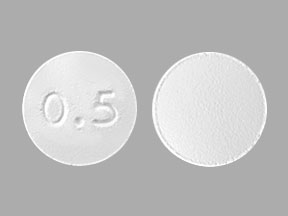
Entecavir Coupons & Savings Card – Discount Prices from $35.41
Generic for: Baraclude
My prescription
Edit
0.5MG, Entecavir (90 Tablets)
Select pharmacy

CVS
$3360.49
COUPON PRICE
Albertsons
$35.41
COUPON PRICE
Walgreens
$45.99
COUPON PRICE
Walmart
$59.07
COUPON PRICEEntecavir savings card
Show this card to your pharmacist
Albertsons
$35.41
BIN
ID
PCN
GRP
019876
LHEEB8BD03
CHIPPO
LHX
Powered by
More prescriptions for hepatitis B
More prescriptions for hepatitis B
Price history for Baraclude (brand) & Entecavir (generic)
90 Tablets, 0.5MG
Average retail price for Baraclude
Average retail price for Entecavir
Average SaveHealth price for Entecavir
Our price history data is based on aggregated prescription data collected from participating pharmacies in America. Our prescription data updates daily to reflect the latest price changes. If you notice a missing data point, it means there wasn't sufficient data available to generate a monetary value for that date.
We analyzed Entecavir prices for (0.5MG, 90 Tablets) over the last 12 months. The average retail price was $42.74, while the average price using the SaveHealth discount card was $32.50. That's a savings of approximately 23.96% when using our Entecavir coupon.
Compared to the generic version, Baraclude had an average price of $1661.97 over the same time period. With the SaveHealth savings card, Entecavir is 98.04% cheaper on average than Baraclude.
*Retail prices are based on pharmacy claims data, and may not be accurate when we don't have enough claims.
Entecavir dosage forms
Dosage Quantity Price from Per unit 0.5MG 90 Tablets $35.41 $0.39 0.5MG 1 Tablet $3.06 $3.06 0.5MG 20 Tablets $13.63 $0.68 0.5MG 30 Tablets $18.33 $0.61 1MG 30 Tablets $21.63 $0.72 1MG 90 Tablets $45.25 $0.50
| Dosage | Quantity | Price from | Per unit |
|---|---|---|---|
| 0.5MG | 90 Tablets | $35.41 | $0.39 |
| 0.5MG | 1 Tablet | $3.06 | $3.06 |
| 0.5MG | 20 Tablets | $13.63 | $0.68 |
| 0.5MG | 30 Tablets | $18.33 | $0.61 |
| 1MG | 30 Tablets | $21.63 | $0.72 |
| 1MG | 90 Tablets | $45.25 | $0.50 |
